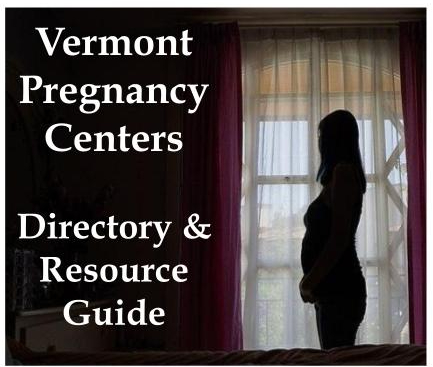by John McClaughry
On May 11 the short life of the Clean Heat Standard (CHS), promising “clean heat for a cooler planet,” came to sudden but probably not final end.
To understand how the CHS originated, let’s go back to September 2020. The legislature, over Gov. Scott’s veto, enacted the Global Warming Solutions Act. The Act declared that the “climate crisis is both caused by and exacerbated by greenhouse gas emissions that result from human activity”. Therefore Vermonters must be made to reduce emissions of carbon dioxide from combustion of fossil fuels – heating oil, natural gas, gasoline, diesel, and propane – by 26% below 2005 levels by 2025, and by 80% below 1990 levels by 2050.
The GWSA established a government-within- the- government called the Vermont Climate Council (VCC), with 8 members from the Scott administration and 15 others, all but one appointed by legislators from among the supporters of activist organizations promoting passage of the GWSA. A crucial provision authorized “any person” to bring a lawsuit against the State if it fails to achieve the mandatory emissions reductions, asking the Court to instruct Administration officials to move faster and harder.
Since more than two thirds of Vermont CO2 emissions come from the transportation and heating sectors, those two sectors were targeted for the bulk of the mandated reductions. The VCC spent a year creating a 273 page report, released in December 2021, containing a host of measures, mandates and pathways to reduce CO2 emissions.
The transportation provisions were built around the Transportation and Climate Initiative (TCI-P), aimed at discouraging internal combustion vehicles by adding the price of required “allowances” to every gallon of motor fuel sold into the state. The fuel distributors would buy allowances from their state governments, thus providing an annual multimillion dollar stream of revenue for the governments. This revenue would finance the subsidies, and protect the poor and most vulnerable from the higher motor fuel prices.
Why not just levy a per gallon tax on gasoline and diesel fuel to make them more expensive? That was rejected because it had the word “tax” in it. Carbon tax proposals had been offered in the Vermont legislature starting in 2014, and even in a legislature heavily dominated by “green” legislators, none of the proposals ever came to a vote. The Climate Action Network banned the use of the dangerous word “tax” in their advocacy.

Alas for the Climate Council, the TCI-P and its lucrative “allowance” sales collapsed in late 2021. Attention then turned to the space heating sector. Richard Cowart of the Climate Council, for many years the chairman of what is now the Public Utility Commission, sold the Clean Heat Standard (CHS) proposal to the receptive Council. It resembled the now defunct TCI-P by requiring fuel dealers to buy “credits” distributed by the PUC to weatherizers and installers of electric heat pumps, wood pellet furnaces, and other non-fossil fuel heating alternatives.
An extraordinary feature of the CHS is giving the PUC free rein to create unlimited “credits” and assign them to worthy projects and enterprises. Customers of Vermont heating fuel distributors would pay for these credits. The CHS is a stealth carbon tax, with the fuel distributor forced to become the tax collector.
For some legislators, an attractive feature of the CHS was that no legislator would ever have to vote on the taxes that the unelected PUC would levy. To its credit, the Senate Appropriations Committee inserted a Check Back provision that required a legislative vote before the tax raising machinery could be set in motion in 2024. The CHS passed the House 99-44 and the Senate 23-7.
Gov. Scott, while declaring his fidelity to the climate crisis narrative, nonetheless decided to veto the bill, even with a Check Back provision now included. (His veto message disputed that.) Every Republican was firmly opposed to the whole scheme. Every Democrat and Progressive was in favor. That should have been enough to – barely – override Scott’s veto. But to the surprise of the Democratic leadership, three Democratic members weren’t sold on this plan. They voted No, and not one could be pressured into reversing his or her vote. The 99-51 vote to override in the House fell one vote short. CHS is dead – at least until January.
In a post-veto news conference Scott indicated that when the CHS policy, costs and impacts are more fully worked out, presumably in 2023, a “revised” CHS might yet win his support. That was not encouraging news to the fuel dealers and their customers who will pay the CHS bill. It couldn’t help but reinvigorate the Climate Council, the Climate Action Network, VPIRG and VNRC, who have urgently promoted the GWSA, TCI-P, CHS, and the earlier carbon tax proposals that failed.
John McClaughry is vice president of the Ethan Allen Institute (www.ethanallen.org).
Categories: Legislation






There’s no doubt in my mind that the refugees under the “Golden Dumb’ will bring back this exercise in subjection.
This tax may be dead but Biden has given us another tax to make up for it. It’s called inflation and Biden is good at it. Now with heating oil costing upwards of $6.00 per gallon, what is the limit? It may be quite a winter.
Vermont is apparently determined to commit economic suicide with its “green” carbon tax nonsense. The same misguided policies of the “green new deal” at the federal level which have taken the USA from being energy independent, while meeting and exceeding goals of the Paris Climate Accord are taking Vermont in a similar downhill direction. And who gets crushed and gets empowered? Hard working Vermonters are getting crushed NOW with gas at record prices caused by the climate alarmists and unelected bureaucrats are empowered . Thanks for nothing!